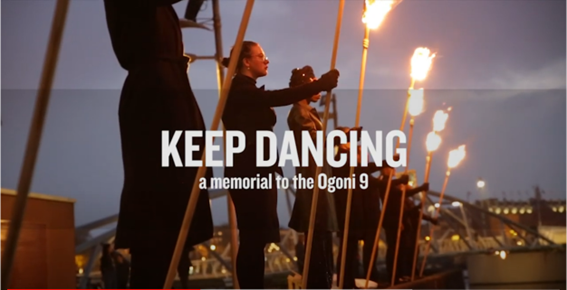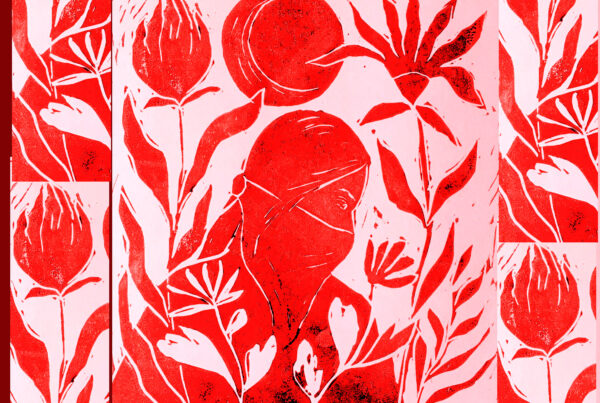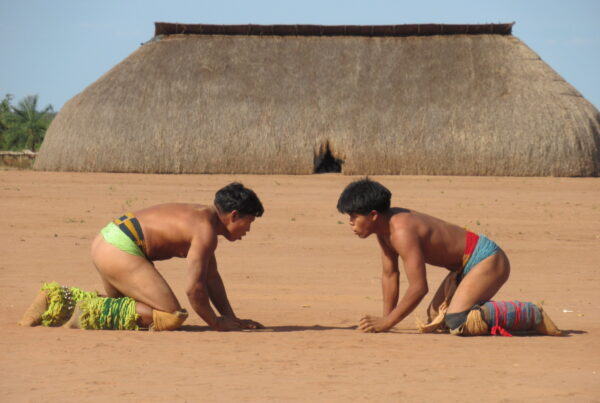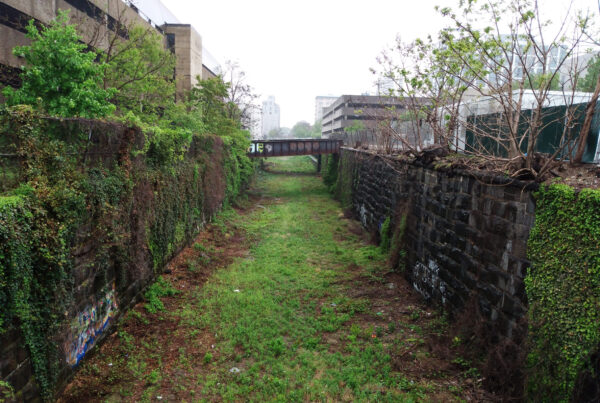By V’cenza Cirefice and Lynda Sullivan
Experiences of international solidarity between communities resisting extractivism throughout Ireland with Indigenous Land and water protectors from the Zapatista and Turtle Island territories, offer important reflections and learnings on how to build a better world, one where many worlds fit.
Intro
We are living through multiple crises: ecosystem and climate collapse, far-right extremism, social inequality and injustice caused by obscene power imbalances. At the root of these crises lies fundamental questions of how we relate to each other and the more-than-human world. Techno-fixes and system tweaking will not save us, our relationships will.
Across Ireland, communities resisting extractive projects have been building solidarity with Indigenous communities on the frontlines. We share reflections and learnings from two important connections. One with the Zapatistas, a revolutionary Indigenous movement from Mexico, and Making Relatives, a collaboration between Water Protectors in Turtle Island (North America) and Ireland.
In our search for a way through and the path to a life-sustaining society, we need to learn from those who, despite it all, have retained their connection to land and life and protected their sense of balance with the natural world.
The Zapatista Journey for Life
For thirty years, the Zapatista’s have lived autonomously in their own territory in Chiapas, south-west Mexico. Their stand against neoliberal capitalism, patriarchy and colonialism have inspired environmental and social justice activists across the globe.
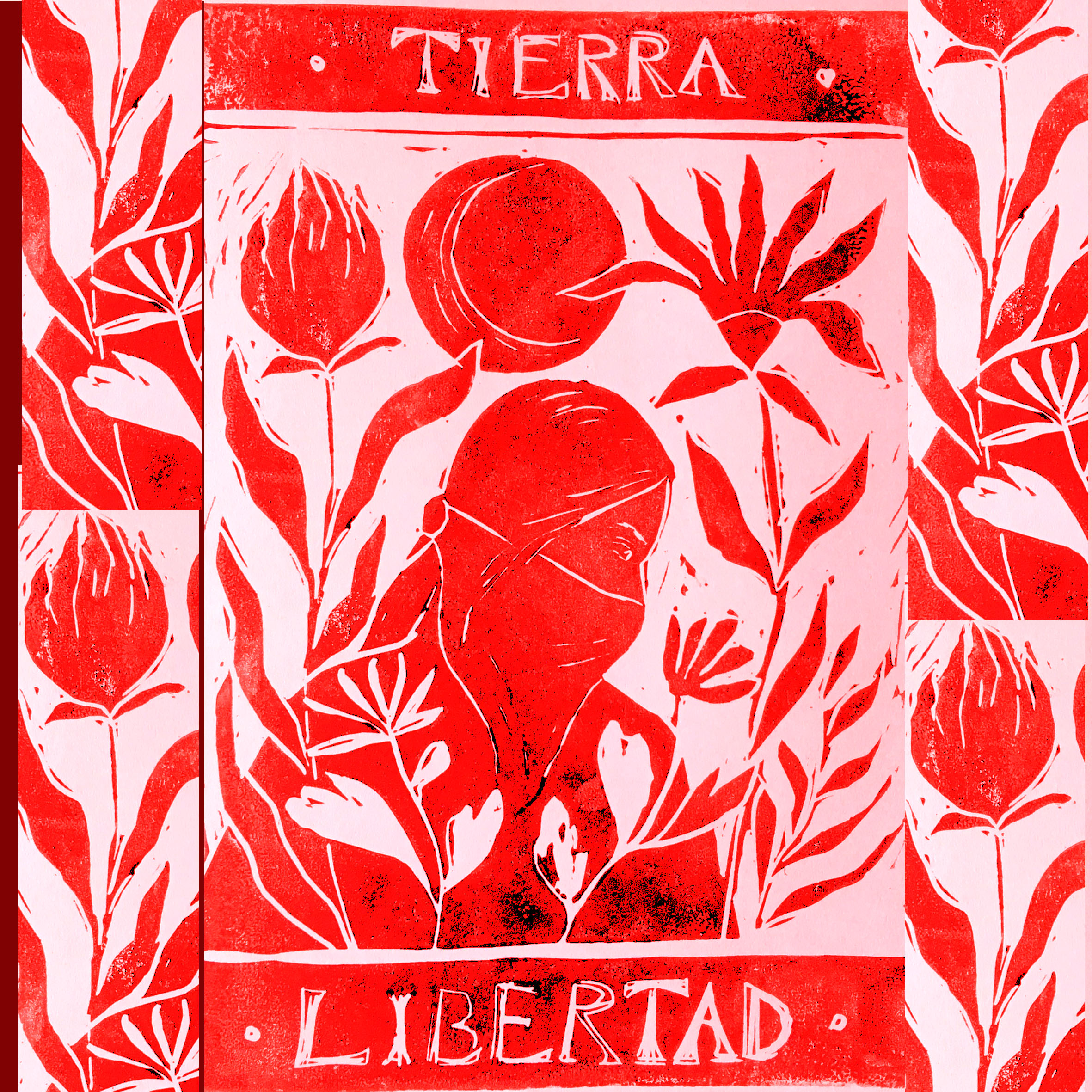
Artwork made for Journey for Life by V’cenza Cirefice and Kate O’Shea. Source: author’s own
In May 2021, seven Zapatistas boarded the La Montaña ship and set sail for Europe as part of the Journey for Life (Caravana por la Vida). Calling this voyage a reverse conquest or invasion, they renamed Europe Slumil K’axkemk’op, (the “rebel continent”) in solidarity with those struggling against neoliberal capitalism and organising for autonomous communities where social and ecological justice prevail.
Ireland hosted a delegation of Zapatistas between 12th and 27th October, with exchanges in Irish, English, Spanish and Mayan languages. The street, field, mountain, forest and bog were our classroom to discuss food sovereignty, housing rights, colonialism, extractivism, local autonomy, and more.
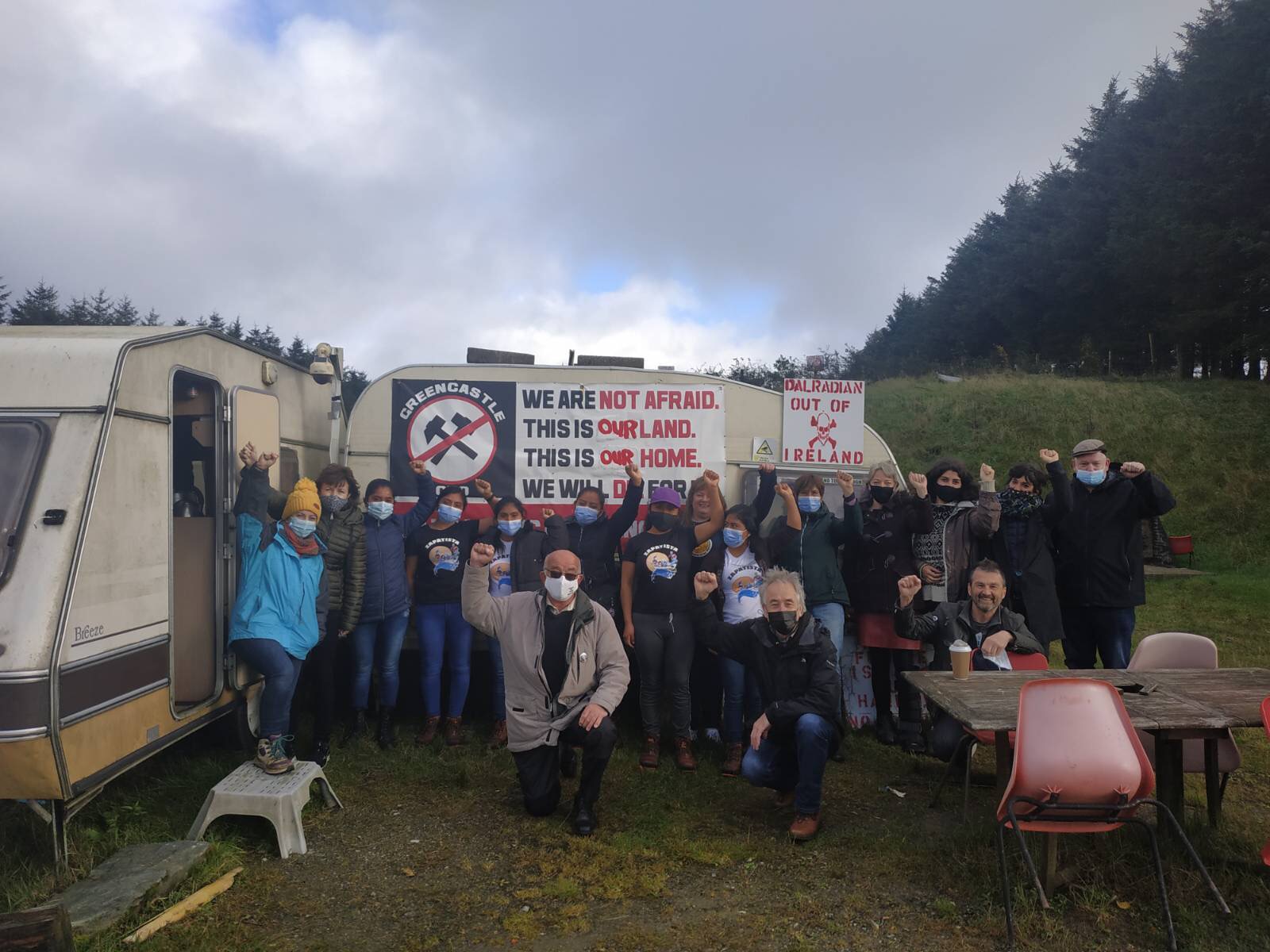
Zapatista’s visit to the GPO, October 2021. Source: authors own
We held two community exchanges in the Sperrins, on the themes of resisting extractivism and local autonomy. We also visited the Greencastle People’s Office, an occupation of lands threatened by a proposed gold mine. Here it was clear the struggle was for all life, human and nonhuman, and against the destruction of the global capitalist system. Local members of the resistance shared experiences of the campaign, many of whom have faced death threats, intimidation and criminalisation. They also spoke to their understanding that their resistance is rooted in place and ancestors who have struggled against oppression, and for future generations, expressing an expanded timescape that the profit driven time scales of extractivism cannot comprehend. The Zapatista’s resonated with this struggle, emphasising the importance of standing with Mother Earth. Building this powerful international solidarity speaks to a common saying in the campaign, Ni neart go cur le cheile, “there is no strength without unity”.
Making Relatives
Lakota Water Protector and Standing Rock organiser, Chas Jewett, has had a connection with Irish organisers for some years. Her last visit in the summer of 2018 also took her to the Sperrins. It was here that Making Relatives was forged; both as a process and a plan. The process was that of making family – with all humans and other-than-human life. The plan involved inviting 21 Indigenous activists, artists and thought leaders from multiple Tribal Nations on occupied Turtle Island (United States) to journey to Ireland for the summer of 2022. In Ireland a collective of activists and communities came together to organise and crowdfund to make it happen.
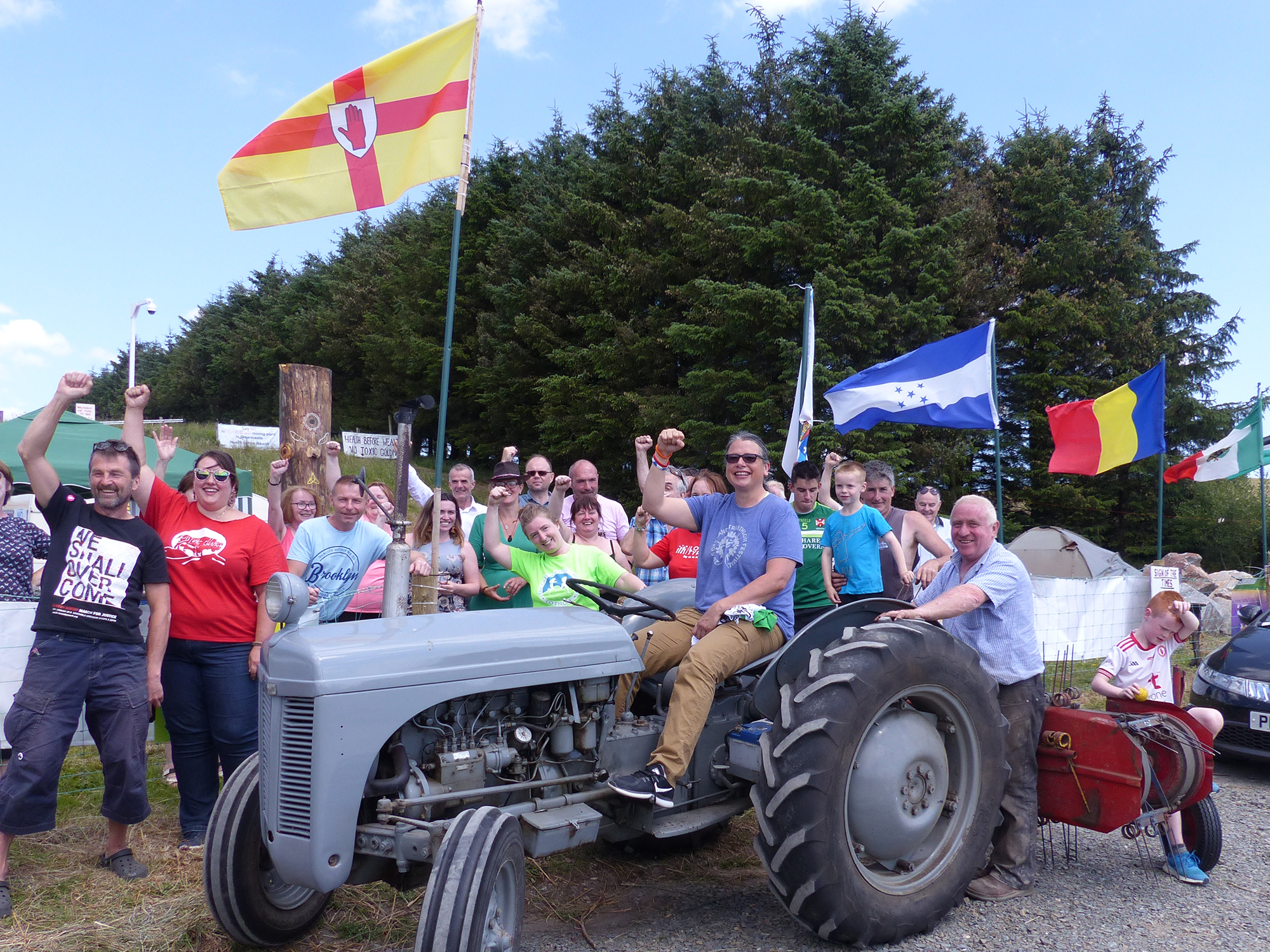
Chas Jewett and Emma Mincks on visit to GPO, 2018. Source: author’s own
Unfortunately, Covid surged on both sides of the Atlantic that summer, so their visit was postponed at the last minute. The dire state of health care availability on Native American reservations highlighted the reality of their ongoing oppression and the need to take extra care in our organising. This was a difficult but necessary lesson; through deep listening, comes deep knowing, and through this knowing comes deep care. Luckily, we had orangiser Emma Mincks with us from Dakota and some activities went ahead, Making Relatives with communities across Leitrim, the Sperrins and Donegal.
This spring and summer, we will try again. This week, we’ll receive Lakota Water Protectors and in June, we will welcome Ojibwe ceremony leader Sharon Day and the Ikidowin youth theatre ensemble. We are being invited to share in a sacred Water Walk, to honour the River Foyle and to pledge our protection. The Foyle is threatened by contamination from mining, industrial agriculture and the largest illegal dump in Europe (Mobuoy).
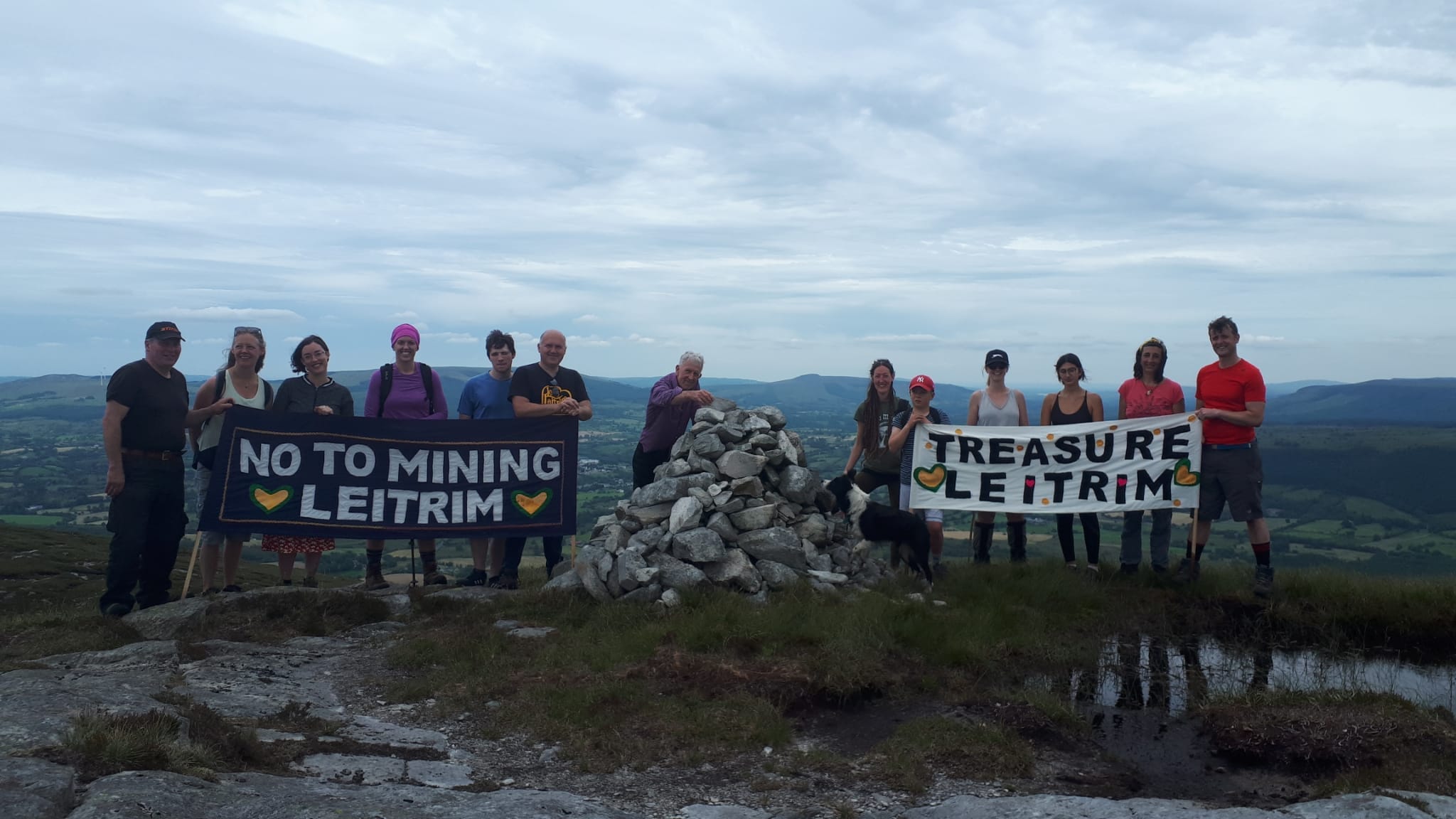
Organisers in Leitrim on top of mountain threatened by gold mining, summer 2022. Source author’s own
Unlearning to learn anew
Organising with our Indigenous relatives from Chiapas and Turtle Island has taught us to shake down our privilege and follow their lead. In a reversal of the colonial dynamic of development and aid, we were eager to receive lessons and expertise from the Majority World. And one lesson was above all else – listen.
Through listening and learning, we can build true solidarity across difference. The Zapatistas and the Tribal Nations of Turtle Island have different histories and current realities of colonial oppression and experiences of extractivism. The Zapatistas are fully autonomous from the Mexican state while the Indigenous Nations of North America are still being squeezed and overwritten by a white supremacist settler state. In Ireland, we have our own experience of colonisation and exploitation; our ancestors were driven from the land through violence or hunger, only to arrive in foreign lands and cross the line to become the oppressor.
Similarly, it is important to understand that we can all reconnect to the natural world now, we can all belong to the land again, but we cannot forget that those who were not disconnected have many centuries of teachings from the big book of the Earth codified in their oral histories. Their ancestral knowledge is the elder to our modern science.
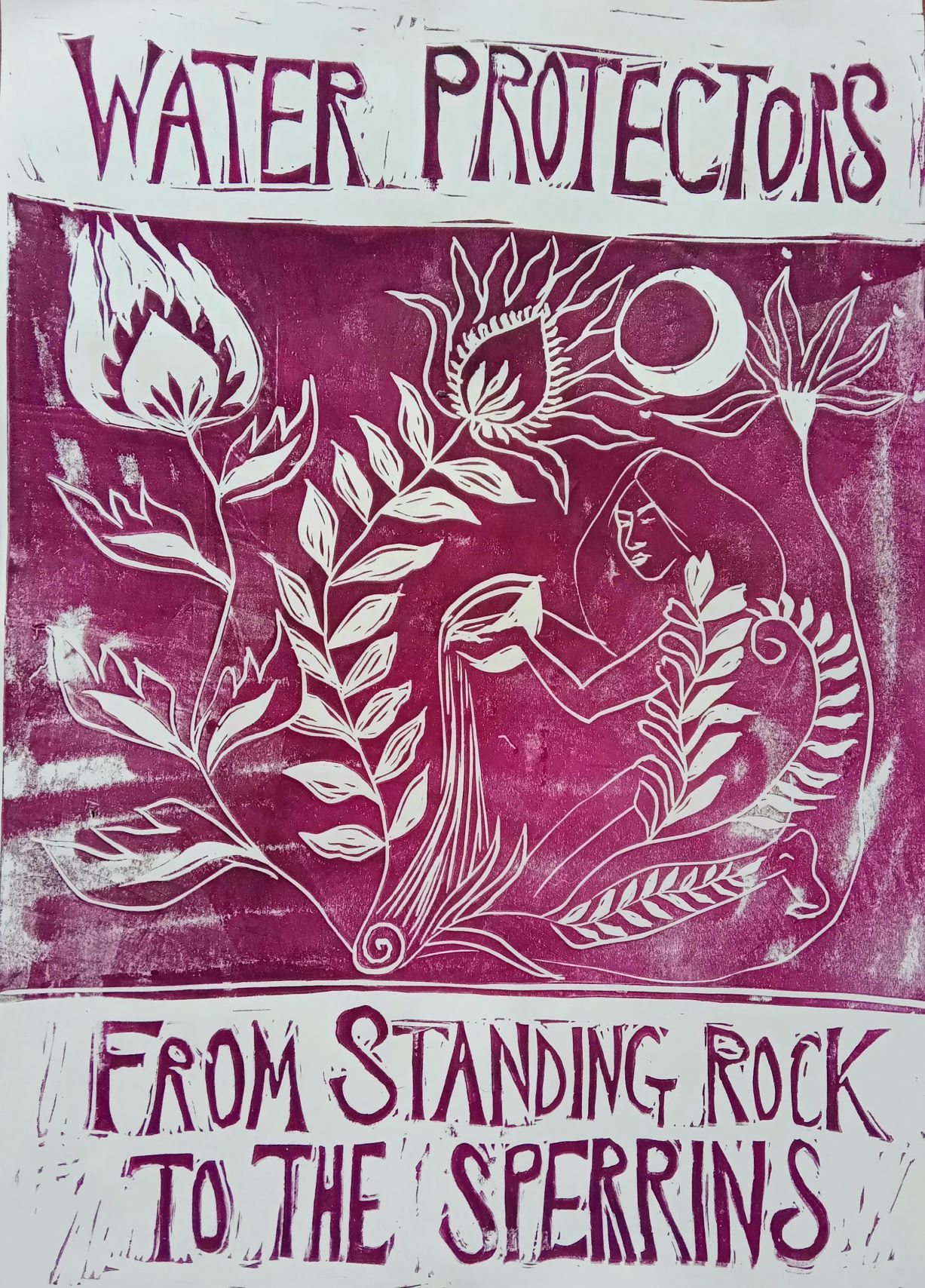
Artwork created for Making Relatives trip by V’cenza Cirefice. Source: author’s own
We can also learn from their spirit of resistance, in spite of the ever-pervading extractive system. Their existence is their resistance, and for us it is not enough just to stand in solidarity – we must insist on radical demands that are anti-imperialist, anti-racist, which foreground Indigenous sovereignty and build an alternative system away from capitalist patriarchy.
In response to the Zapatistas’ story of liberation, someone asked how we can do the same. The response was that we should not follow their liberation story, but should write our own. How can we build our own autonomy from the system, within our own reality? With our colonised history and capitalist present, how can we grow the shoots of sovereignty?
One response is by building community. Within our borders, without and despite. By centering care and relationships, joy and love. By reweaving ourselves back into the web of life, by relaying the Commons. It is also by having the confidence to assume our own role as Water and Land Defenders. We cannot leave it up to the youth movements and Indigenous Peoples to carry the weight. Yes, they are leading the way, and we need to be humble and listen, but we then need to act.
Going forward
Communities in Ireland are not only holding back the extractive frontier but also pointing towards transformative post-extractive futures. The translocal solidarities woven with Making Relatives and the Zapatistas have strengthened the desire to build our own autonomy from the system.
Alternatives are growing, from reclaiming the commons, recentering care, Rights of Nature, well-being economies and food and energy sovereignty, as well as strengthening networks of resistance, like CAIM in Ireland and the Yes to Life No to Mining internationally.
The ripples of these visits will reverberate across this island for some time, giving inspiration and strength to those who are struggling in our cities, towns and fields, to build a better world, one where many worlds fit.
V’cenza Cirefice is an activist, artist and researcher exploring resistance to extractivism. She organises with CAIM (communities against the injustice of mining), Making Relatives and Zapatour Ireland.
Lynda Sullivan is an activist, organiser and writer with CAIM, Making Relatives, Zapatour Ireland and Yes to Life No to Mining.
Top (featured) images: Artwork created for the Making Relatives trip by V’cenza Cirefice (Left) together with artwork created for the Journey for Life trip by V’cenza Cirefice and Kate O’Shea. Source: author’s own


